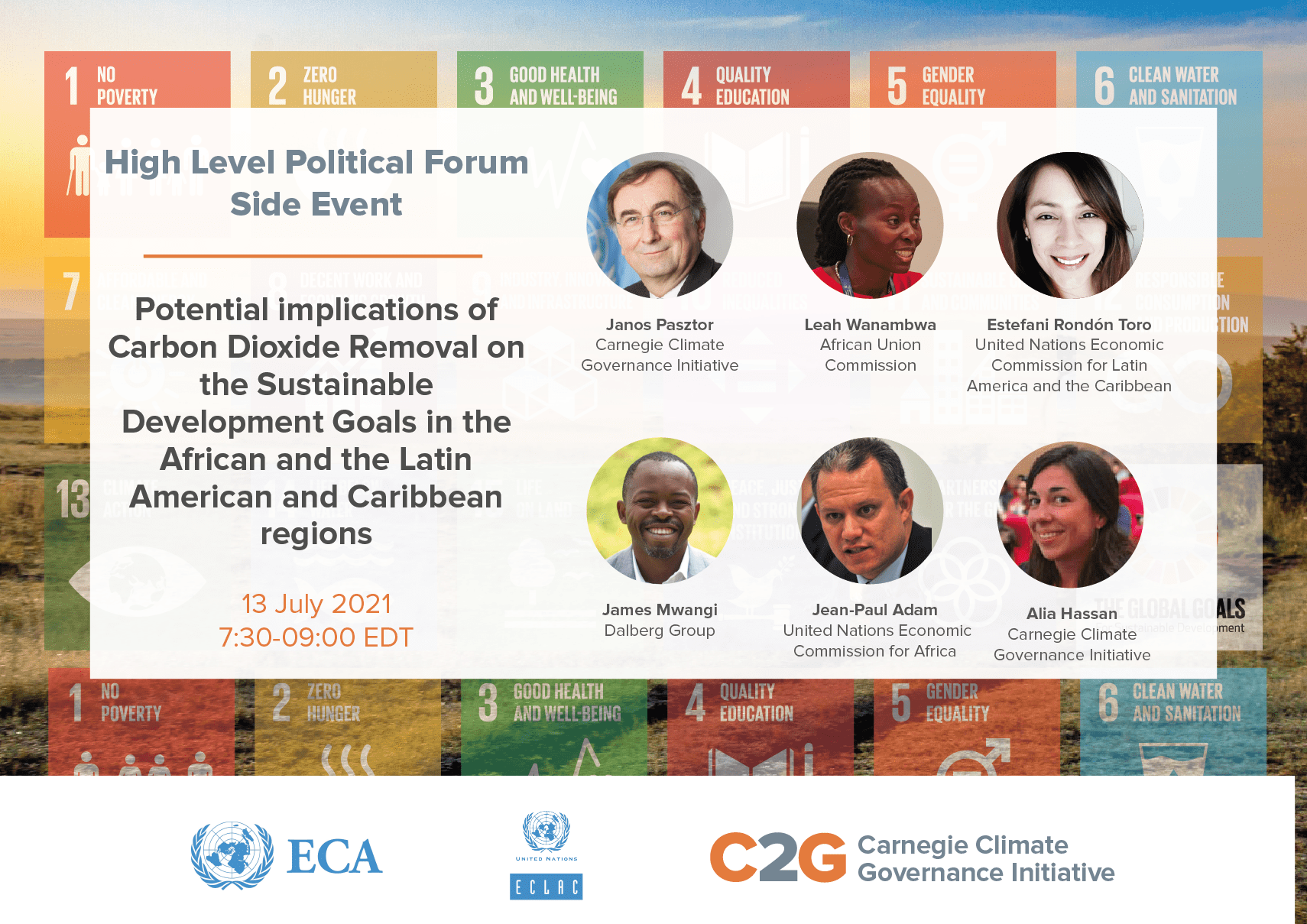Context:
The high-level political forum on sustainable development (HLPF) is the core United Nations platform for follow-up and review of the 2030 Agenda for Sustainable Development and its 17 Sustainable Development Goals (SDGs).
The meeting of the HLPF in 2021 will be held from Tuesday, 6 July, to Thursday, 15 July 2021, under the auspices of the Economic and Social Council. This includes the three-day ministerial meeting of the forum from Tuesday, 13 July, to Thursday, 15 July 2021 as part of the high-level segment of the Council.
The theme will be "Sustainable and resilient recovery from the COVID-19 pandemic that promotes the economic, social and environmental dimensions of sustainable development: building an inclusive and effective path for the achievement of the 2030 Agenda in the context of the decade of action and delivery for sustainable development".
The HLPF in 2021 will discuss Sustainable Development Goals 1 on no poverty, 2 on zero hunger, 3 on good health and well-being, 8 on decent work and economic growth, 10 on reduced inequalities, 12 on responsible consumption and production, 13 on climate action, 16 on peace, justice and strong institutions, and 17 on partnerships in depth. The Forum will also consider the integrated, indivisible and interlinked nature of the Sustainable Development Goals.
In the 2021 HLPF, participants will be able to explore various aspects of the response to the COVID-19 pandemic and the various measures and types of international cooperation that can control the pandemic and its impacts and put the world back on track to achieve the SDGs by 2030, within the decade of action and delivery for sustainable development.
Countries will also carry out voluntary national reviews (VNRs) of their implementation of the 2030 Agenda in the 2021 HLPF.
The HLPF will adopt a Ministerial Declaration as the outcome of its session. The President of ECOSOC will also prepare a summary to capture the key messages of the discussions.[1]
Objective(s) and intended impact(s):
To catalyze a discussion on the potential implications of Carbon Dioxide Removal (CDR) approaches on the Sustainable Development Goals (SDGs) in the African and Latin America and the Caribbean (LAC) regions by analyzing their benefits and risks so countries can make informed decisions whether any of these approaches may be useful to incorporate in their Nationally Determined Contributions (NDC) and Long-Term Strategies (LTS) to contribute to the Paris Agreement goals.
Side event title:
Potential implications of Carbon Dioxide Removal approaches on the Sustainable Development Goals in the African and Latin America and the Caribbean regions.
Event description:
While awareness of the global climate emergency is growing, a persistent gap remains between international commitments and pathways to the 1.5-2oC goal of the Paris Agreement (PA). According to the Intergovernmental Panel on Climate Change (IPCC), greater emissions reduction ambition is needed if we are to avoid exceeding the 1.5oC threshold.
Climate change impacts and responses are closely linked to sustainable development and in addition to a primary focus on emissions reductions and adaptation, carbon dioxide removal approaches -- both nature-based and through technological innovation -- can be used to remove residual CO2 from the atmosphere.
An array of Carbon Dioxide Removal (CDR) approaches are being considered. These include: afforestation and reforestation; land restoration and carbon sequestration in soil; Bioenergy with Carbon Capture and Storage (BECCS); Direct Air Capture and Carbon-Dioxide Storage (DACCS); and enhanced weathering and ocean alkalinity. Currently, these techniques differ widely in terms of maturity, potential, costs, risks, benefits, and governance requirements. Knowing their viability and sustainability to advance towards the achievement of the climate goals of the Paris Agreement could be the starting point for their application at different scales.
In the context of the forthcoming Conference on Climate and Development in Africa (23rd-27th August), and in preparation for COP26, African and LAC countries are considering the best options that can help them reduce their carbon emissions, achieve net zero while also accelerating their sustainable industrialization in the context of a just transition.
Based on the findings of a recent study commissioned by ECLAC and C2G, this side event will give an overview of these approaches and will analyze some of their known potential benefits and risks in the context of the Sustainable Development Goals. This information will allow decision-makers to identify knowledge gaps that need to be filled so they can consider the most suitable techniques to be incorporated in the new generation of NDC and LTS



